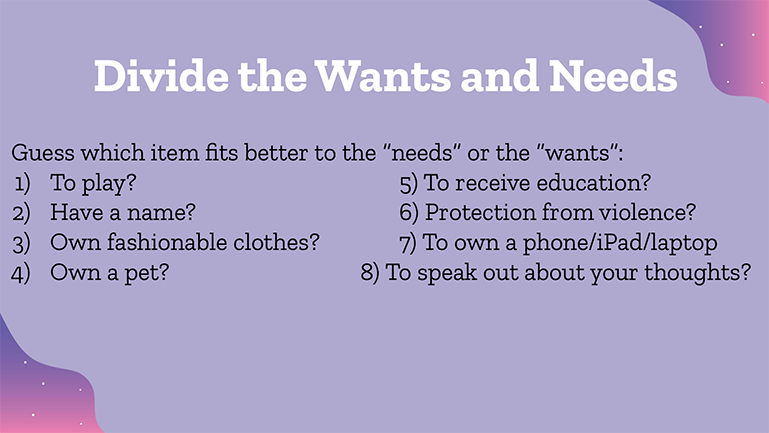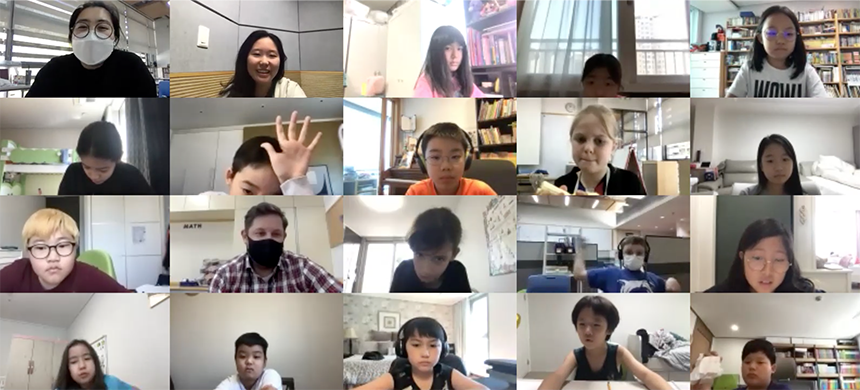Since completing the Children’s Rights Advocacy Program of the International Child Rights Center earlier this year, I have been wondering what I could do with the knowledge I learned from the program. Having consulted with a mentor from the organization, I was able to come up with the idea of organizing workshop sessions with my school’s elementary students. Using the resources from the advocacy program to plan the workshop sessions, I started doing research at school to see which grade level I should aim for. By communicating with numerous teachers at the elementary school, I learned that I should target first and fourth grade students. As fourth grade teachers have planned to teach the students about human rights and children’s rights in one of their classes, I thought that the activities I planned to do with them during my workshop would help the students better understand this topic.
By asking my siblings who have already completed grades one and four courses, I was able to get a good idea of how deep each grade level dives into the topic of children’s rights. With the information that I had gathered, I started to research the kind of language that I could use to teach students during the workshop. I also modified some activities to make them more enjoyable for young students and compatible for online session. As COVID-19 affected our school schedule, I had to moderate my plan so that the sessions could be flexible both online and offline. For example, with the “Wants and Needs” activity which involved using cards, I changed the language on the cards to make it more child-friendly and relatable to young students. With the uncertainty over whether the workshop sessions will be done online or offline, I decided to create slides that I could use.

After the continuous change in the school schedule, it was finally concluded that the Grade 1 workshop sessions will be held offline while the Grade 4 workshop session will be held online. With this in mind, I wanted to make use of the time as effectively as possible since young students usually don’t have a long attention span. Therefore, I aimed to make the workshop concise and easy to understand, which would also make it easy for the students to refer back to my workshop session in the future when they learn more about this topic. I added more activities that require students to think creatively and critically. These activities included writing down and discussing actions students can take to ensure that children’s rights are respected at school and at home.

From the workshop, I was surprised to find how little Grade 1 students knew about children’s rights and human rights. The majority of the students were unaware of what this topic consisted of. This discovery made me glad to have organized this workshop. Compared to Grade 1 students, Grade 4 students had a basic understanding of children’s rights. After participating in my workshop session, they were able to clearly define children’s rights in their own words based on their own experiences. Though I understand that Grade 1 students are too young to fully understand the idea of children’s rights, I still believe that it is important for them to learn about this topic at school from a young age. This belief comes from my opinion that understanding human rights and children’s rights from a young age helps children build up their identity and background. This will have a positive influence on their life when they grow up. Children who are aware of their rights at a young age are able to acknowledge themselves as independent beings. Yet, for children who are unaware of their rights, their identity may develop more slowly. Hence, I am glad that I was able to provide young students with the opportunity to learn about this topic, and I hope that this is the beginning of the journey to explore more about their rights.

Ashley Minju Song
Senior (Grade 12)
Chadwick International

